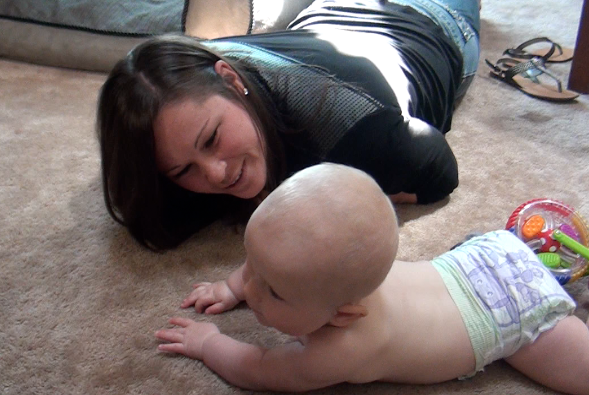
Early childhood development is highly variable. It is perfectly within the normal range for a 24-month-old to say 50 words or 150 words. That is a big difference. It’s a good idea to use the charts as a guide, but not to get too caught up in them. The most important things about early milestones are:
- Babies should continue to make progress every month. It doesn’t have to be on the exact day of their birthday, but you should see constant progress, and new developmental changes every week or two.
- Baby development should never plateau for more than a month. If there are no new milestones or developmental changes for more than a month in the first year, check with baby’s pediatrician.
- Baby development should never regress. If they were able to master a skill (crawl, for example) and suddenly they stop, that is a red flag.
- Social development is as important as physical development. Encourage eye contact, lots of interaction with other babies and adults, and verbalization as much as possible.
Babies should never skip a developmental milestone. This is perhaps the most important, because in our competitive society, parents applaud children who go straight to walking without ever crawling, and this could cause problems down the road. Every developmental milestone builds on the previous one and each phase lays the groundwork for skills that will be learned later on.
References:
Aamodt, S. & Wang, S. (2011). Welcome to Your Child’s Brain: How the Mind Grows from Conception to College. Bloomsbury, NY.
American Academy of Pediatrics https://www.aap.org/en-us/Pages/Default.aspx
American Journal of Occupational Therapy https://ajot.aota.org
Leach, P. (1997). Your Baby & Child. Random House.

